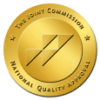Facing heroin addiction is an overwhelming challenge that can leave you feeling trapped and hopeless. The journey to recovery often begins with the difficult process of detoxification, which can be physically and emotionally taxing. That’s where Tennessee Detox Center comes in, providing a supportive environment and heroin detox in Tennessee residents can trust.
Tennessee Detox Center offers comprehensive programs tailored to meet your individual needs. Our services include medically supervised detox, counseling, and aftercare planning, ensuring you receive the care and support necessary for a successful recovery. By choosing our center, you’re taking a crucial step toward reclaiming your life.
Getting help is not just about overcoming addiction; it’s about rediscovering your potential and embracing a healthier future. With the right support and heroin addiction treatment, you can break free from the chains of addiction and start living life on your terms.
What Is Heroin Detox?
The Importance of Detox for Heroin Addiction Recovery
Detox plays a vital role in overcoming heroin addiction. Managing withdrawal symptoms is crucial, as they can range from mild discomfort to severe complications. By undergoing detox, individuals benefit from several key aspects:
- Medical Supervision: Medical professionals monitor health during detox, ensuring safety and comfort. This supervision offers immediate care for any complications that arise.
- Symptom Management: Healthcare providers administer medications to ease withdrawal symptoms, making the process more bearable. Relief from symptoms fosters a more positive outlook on recovery.
- Psychological Support: Counseling services during detox help address underlying emotional issues. Individuals gain tools to manage cravings and develop coping strategies.
- Foundation for Recovery: Completing detox prepares individuals for ongoing treatment. It allows a smooth transition to rehabilitation programs designed to address addiction’s root causes.
Choosing Tennessee Detox Center in Nashville, Tennessee ensures access to personalized detox plans tailored to your unique needs. The professional team offers the support necessary for a successful start on the road to recovery.
Signs and Symptoms of Heroin Addiction
Recognizing the signs and symptoms of heroin addiction is crucial for timely intervention. These indicators fall into three main categories: behavioral, physical, and mental.
- Borrowing Money: You may find yourself trying to borrow or steal money to fund your habit.
- Neglecting Responsibilities: Failure to meet personal responsibilities often occurs, including not attending work or school.
- Deception: Lying or being deceptive about your whereabouts is common.
- Social Isolation: Withdrawing from friends and family can indicate a growing addiction.
- Neglected Hygiene: A noticeable decline in personal appearance and hygiene often appears.
- Fatigue: Constant exhaustion is a common symptom.
- Itchiness: Persistent itchiness can be linked to drug use.
- Dry Mouth and Watery Eyes: You may experience dry mouth along with watery eyes.
- Runny Nose: A runny nose often accompanies withdrawal symptoms.
- Weight Loss: Significant and unexplained weight loss may occur.
- Constipation: Consistent digestive issues like constipation are frequent.
- Constricted Pupils: You’ll notice a change in pupil size, with constricted pupils being a classic sign.
- Sleep Issues: Inconsistent sleep patterns can emerge.
- Skin Issues: Scars and sores, especially from injected use, may become evident.
- Concentration Problems: Inability to concentrate or focus presents challenges in daily activities.
- Poor Judgment: You might make poor decisions due to impaired judgment.
- Forgetfulness: Frequent forgetfulness can occur as addiction progresses.
- Paranoia: Feelings of paranoia are not uncommon.
- Mood Swings: Unpredictable mood swings can affect personal relationships.
- Anxiety: High levels of anxiety often accompany heroin addiction.
Understanding these signs and symptoms is essential for recognizing when you or someone you care about needs help. If you notice any of these issues, it’s best to reach out to our heroin detox center right away.
Your journey toward healing begins today.
Heroin Addiction in Tennessee: Key Statistics
Heroin addiction significantly impacts Tennessee and its communities. According to the 2022–2023 National Survey on Drug Use and Health (NSDUH), approximately 15,000 individuals aged 12 and older in Tennessee reported using heroin in the past year. Though heroin use represents a smaller percentage compared to other substances, its highly addictive nature and strong link to overdose deaths make it a critical public health issue. The widespread presence of synthetic opioids like fentanyl—often mixed with heroin—has further intensified the risks.
Understanding these local statistics is essential to grasp the full extent of the heroin crisis in Tennessee. It’s also one of the reasons Tennessee Detox Center offers comprehensive services, including medically supervised detox, upscale residential treatment programs, and aftercare planning—serving individuals in Nashville and across the state.
Prevalence of Heroin Use
In the Nashville area, 0.34% of individuals aged 12 or older used heroin the past year. This percentage slightly exceeds the national average of 0.30%. Approximately 19,000 individuals in Tennessee used heroin within the last year, highlighting the pervasive nature of this addiction.
Opioid and Heroin Addiction
Around 70,000 individuals in Tennessee face opioid addiction, including heroin. This figure illustrates the broader opioid crisis affecting the state. Middle Tennessee communities particularly suffer from rising heroin addiction rates in recent years, emphasizing the urgent need for effective heroin addiction treatment options.
Heroin-Related Overdoses and Deaths
In 2021, heroin played a role in 34% of overdose-related emergency department visits in Nashville. In comparison, non-heroin opioids accounted for 61% of visits, while stimulants accounted for 5%. This data indicates a troubling shift from heroin towards synthetic opioids and stimulants in the region. Understanding these trends is crucial for addressing the ongoing crisis and ensuring support for those in need.
What to Expect During Heroin Detox at Tennessee Detox Center
 Safe and Comfortable Detox Environment
Safe and Comfortable Detox Environment
Our Detox centers in Tennessee create a secure setting tailored for your comfort during withdrawal. At our high-end rehabilitation facilities, you can find private rooms, calming and luxurious aesthetics, catered meals, and supportive staff to help ease physical and psychological discomfort. This environment plays a vital role in your detox, allowing recovery to begin a nurturing space.
 24/7 Medical and Emotional Support
24/7 Medical and Emotional Support
Continuous medical supervision stands as a cornerstone of heroin detox at Tennessee Detox Center. Trained professionals monitor your health at all hours to manage potential complications and adjust treatments as necessary. Expect individualized care plans tailored to your specific withdrawal symptoms. Emotional support is equally prioritized. Therapists are available to provide counseling sessions that address underlying mental health issues. This dual approach ensures you receive comprehensive care—nurturing both your physical and emotional well-being throughout the detox process.
Causes and Risk Factors of Heroin Addiction
Heroin addiction arises from a mix of genetic, environmental, and physical factors. These influences significantly affect the development of heroin use disorder.
Genetic Factors
- Research shows genetics significantly contribute to substance use disorders, including heroin addiction. Having biological parents with a substance use disorder increases the likelihood of developing addiction, even in children raised by non-addictive adoptive parents.
- Genetic predisposition to impulsivity also serves as a key risk factor for heroin use disorder. Impulsive individuals may engage in risky behaviors, leading them toward substance misuse.
Environmental Factors
- Environmental influences, including exposure to drug abuse in the community, also heighten the risk of heroin addiction. Factors like peer pressure, socioeconomic status, and living conditions play critical roles in substance use behavior.
- Trauma experienced during childhood, such as abuse or neglect, can create vulnerability to addiction later in life. Individuals with adverse childhood experiences often turn to substances as coping mechanisms.
Physical Factors
- Physical health issues, such as chronic pain or co-occurring mental health disorders, can lead to heroin addiction as a means of managing symptoms. Those dealing with untreated mental illnesses may resort to substance abuse for temporary relief.
- Withdrawal symptoms experienced when attempting to quit illicit substances can drive individuals back to heroin use. Understanding these triggers is essential during the detoxification process to ensure a safe and effective recovery.
Recognizing these causes and risk factors sets a foundational understanding of heroin addiction, making it vital for treatment strategies implemented at Tennessee Detox Center.
Effects of Heroin Addiction on Health and Life
Heroin addiction significantly impacts both health and life, leading to severe physical and mental issues.
Physical Health Issues
- Heroin use causes liver and kidney disease, lung complications, and severe constipation.
- Intravenous users risk collapsed veins, abscesses, and soft-tissue infections, alongside blood-borne infections like hepatitis B, hepatitis C, and HIV.
- Heart infections, known as endocarditis, lead to damaged heart valves, with users facing severe blood infections.
- Dental problems, loss of appetite, menstrual and fertility issues in females, and loss of sex drive in males are common.
Mental Health Effects
- Heroin addiction can result in anxiety, depression, and mood swings. These mental health struggles make recovery more difficult and necessitate comprehensive treatment.
- Users may experience problems with concentration and decision-making. Cognitive impairments contribute to risky behaviors that further endanger health and relationships.
- Ongoing use often leads to social isolation, which exacerbates mental health challenges. Rebuilding connections forms a critical component of effective recovery.
Life Impacts
- Relationships often suffer due to dishonesty and neglect of responsibilities, leading to the loss of friendships and family connections.
- Financial instability arises from spending money on heroin, resulting in job loss and mounting debt for many individuals.
- Legal issues frequently emerge from drug-related activities, such as possession or distribution, leading to further complications in life.
- Overall quality of life deteriorates as addiction progresses, highlighting the urgency for effective detoxification and rehabilitation at facilities like Tennessee Detox Center in Nashville.
Why Choose Tennessee Detox Center for Heroin Detox in Tennessee?
Tennessee Detox Center offers unparalleled support for those facing heroin addiction. Consider these key aspects of our heroin detox and inpatient treatment services.

Comprehensive and Holistic Care Plans

Medical Detoxification

Holistic Treatment Approach
Tennessee Detox Center adopts a holistic treatment approach that targets the complete person. This includes addressing emotional, mental, and spiritual health along with physical recovery. Incorporating therapies like yoga, meditation, and nutritional counseling, the center promotes overall well-being, helping you reconnect with your sense of self and purpose during the recovery journey.
Choosing Tennessee Detox Center for heroin detox represents a vital step toward reclaiming your life. By accessing their comprehensive and supportive services, you move closer to a healthier, more fulfilling future.
Benefits of our Heroin Detox Program in Tennessee Heroin detox in Tennessee offers numerous advantages that support recovery and improve overall well-being.
-
Medical Supervision and Safety:
Tennessee Detox Center ensures 24/7 medical monitoring. This constant supervision guarantees your safety and comfort throughout the detox process. Professionals manage severe withdrawal symptoms that can pose risks to your health.
-
Effective Management of Withdrawal Symptoms:
Medications approved by the FDA, including methadone, buprenorphine, and naltrexone, effectively alleviate withdrawal symptoms. These medications help reduce cravings, making the detox experience more manageable.
-
Comprehensive Support Systems:
Heroin detox in Tennessee emphasizes holistic approaches. Facilities like Tennessee Detox Center incorporate therapy sessions that address emotional and psychological aspects of addiction. Support groups provide social connections and sharing of experiences, which can foster motivation and healing during your recovery journey.
-
Structured Detox Process:
Detox programs are designed to facilitate a smooth transition from dependency to recovery. This structured approach includes individualized care plans, ensuring you receive the specific attention needed for a successful detox. Structure also reduces anxiety and helps build a strong foundation for ongoing recovery efforts.
-
Access to Additional Resources
Choosing a heroin detox center in Tennessee opens the door to further resources and programs that support long-term recovery. By accessing aftercare services, you lay the groundwork for continued success and help prevent relapse, reinforcing the positive changes initiated during detox.
-
Community and Connection
Detox facilities foster a sense of community, allowing you to interact with individuals facing similar challenges. This sharing encourages mutual support, creating a motivating environment to inspire growth and commitment to recovery. Ultimately, heroin detox in Tennessee, particularly at Tennessee Detox Center, offers a safe, effective, and supportive pathway to recovery. You gain access to medically supervised care, effective medications, comprehensive emotional support, and valuable resources aimed at empowering you in this crucial phase of your life.
Start Your Heroin Detox Journey with Tennessee Detox Center
Embarking on the journey of heroin detox in Nashville can be a life-changing decision. By choosing a supportive environment like Tennessee Detox Center, you’re not just addressing addiction—you’re building a foundation for a healthier, more fulfilling life.
At Tennessee Detox Center, the combination of medical supervision, personalized care, and emotional support ensures you have the resources needed to navigate recovery with confidence. Taking this step is a powerful move toward reclaiming your life and breaking free from addiction.
Seeking help is one of the strongest decisions you can make. With the right support, you can overcome obstacles, rediscover your potential, and embrace a brighter future. Call us today at (629) 262-5675 to take the first step toward lasting sobriety. We’re here to guide you every step of the way!
Frequently Asked Questions
Heroin detox is the process of managing withdrawal symptoms after stopping heroin use. It involves medical supervision to ensure safety, symptom management through medications, and psychological support. This critical step helps break physical dependence and lays the groundwork for further recovery.
Detoxification is essential because it helps individuals safely manage withdrawal symptoms, reducing the risk of relapse. It also provides the necessary support and foundation for ongoing treatment, facilitating the transition into recovery and aiding in rediscovering one’s potential.
Tennessee Detox Center offers comprehensive programs such as medically supervised detox, counseling, and aftercare planning. Their services are designed to provide a supportive environment, focusing on individualized care to help individuals overcome addiction and pursue a healthier life.
Signs of heroin addiction include behavioral changes, such as secretive behavior, physical symptoms like sudden weight loss, and mental symptoms such as mood swings or confusion. Recognizing these indicators can lead to timely intervention and support before the situation worsens.
The detox process at Tennessee Detox Center is structured and involves continuous medical supervision. Trained professionals monitor each individual’s health around the clock and provide personalized care plans. Emotional support and counseling are also integral parts of the detox experience.
Heroin addiction can arise from a combination of genetic, environmental, and physical factors. Risk factors include a history of substance abuse, mental health disorders, or exposure to trauma. Understanding these causes is crucial for effective treatment strategies.
Medical supervision during detox offers safety and security, ensuring that withdrawal symptoms are managed effectively. This supervision helps mitigate risks associated with detox, such as severe health complications, and provides emotional support through trained professionals.
After detox, individuals can access various resources, including therapy, support groups, and aftercare planning. These resources aim to foster emotional healing, build a support network, and enhance long-term recovery prospects in a safe and community-oriented environment.

| Medically Reviewed By: Board-Certified Psychiatrist and Addictionologist |

| Clinically Reviewed By: Board Certified Clinical Social Worker |
Did you know that your insurance plan may cover medical detox?

Elevating Recovery:
Unmatched Amenities & Individualized Support

State-Of-The-Art Facility

Luxury Bedrooms

Dedicated Private Chef

Fun and Games

Clinician & Medical Owned & Operated

Family Therapy Sessions

Weekly Outings

Twice‑Weekly Individual Therapy

Small Groups, Big Recovery
Get Family Support Now
Supporting Families Through Recovery
We understand addiction affects the whole family. Our comprehensive family program helps rebuild trust and restore relationships.
Weekly Family Therapy Sessions
Educational Workshops
Support Groups
Communication Skills Training
Get Family Support Now



